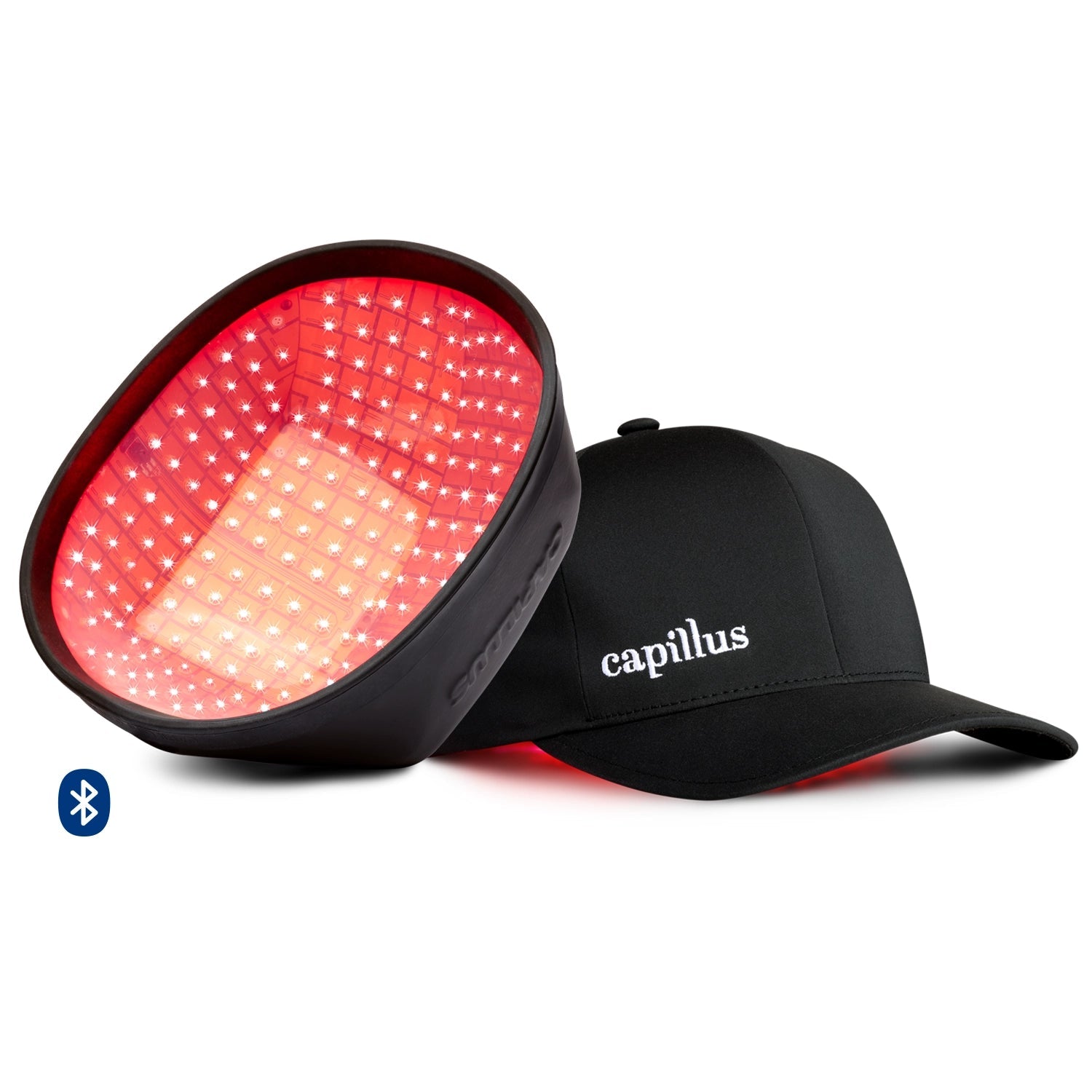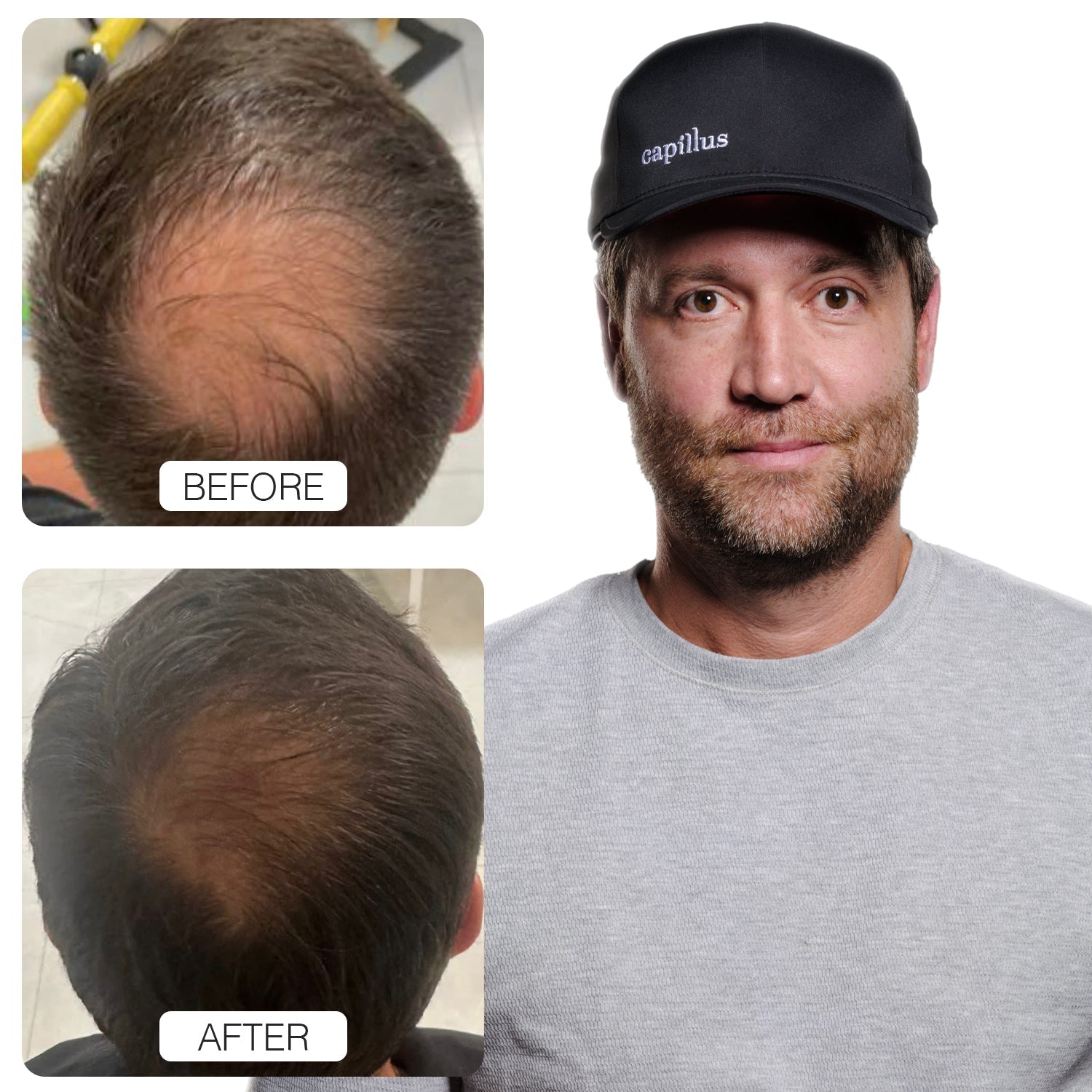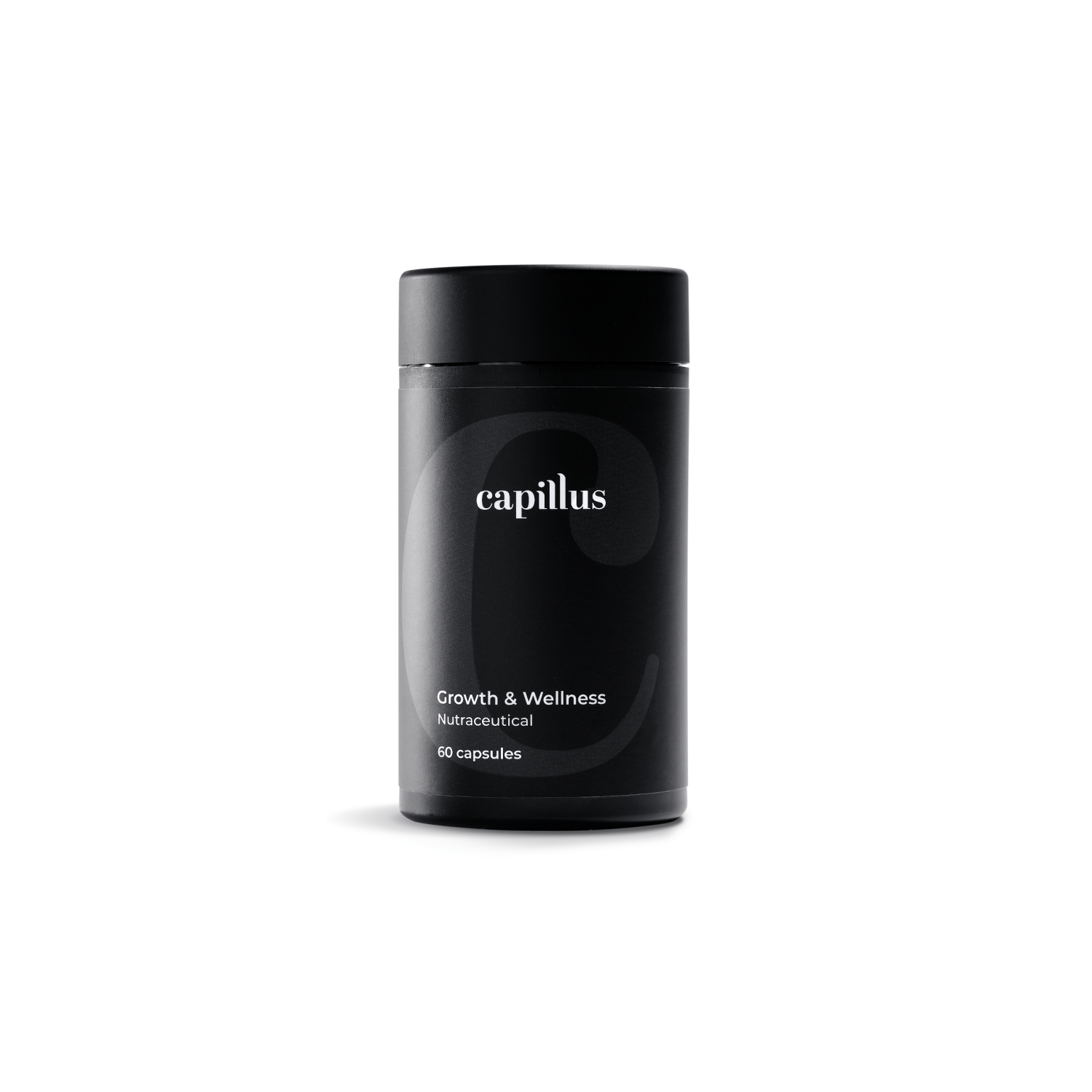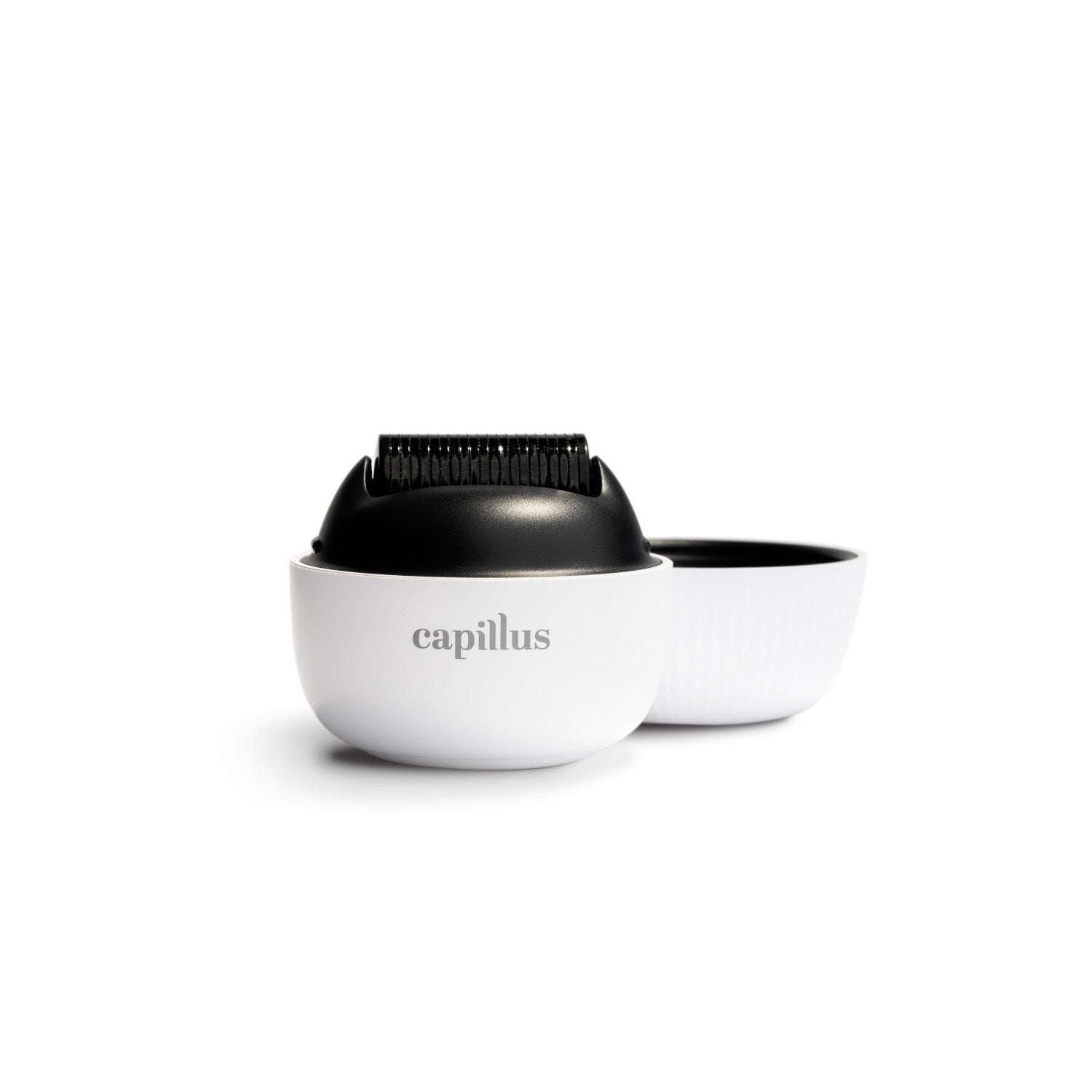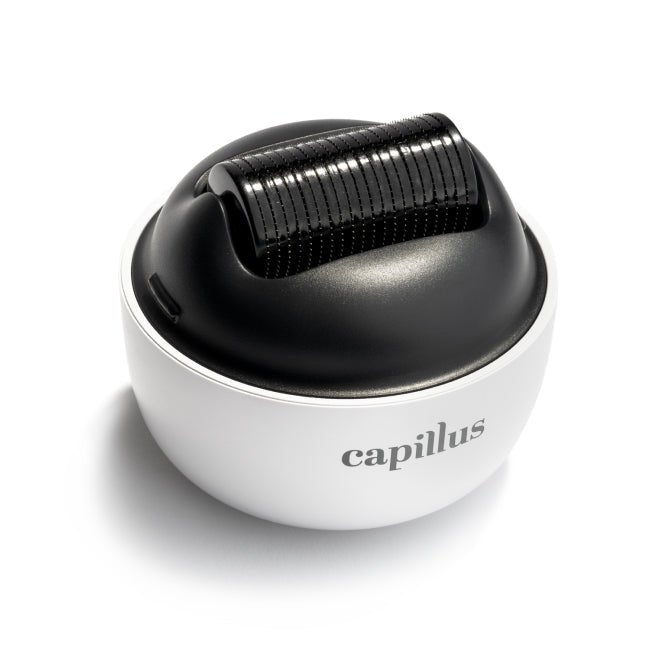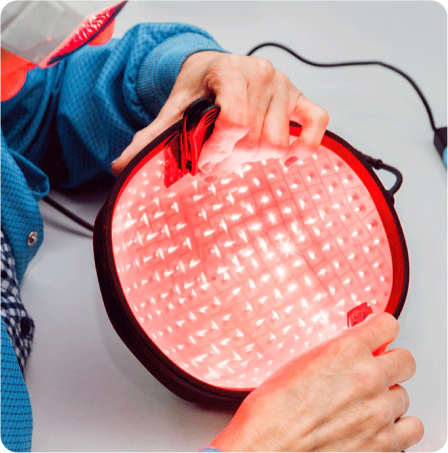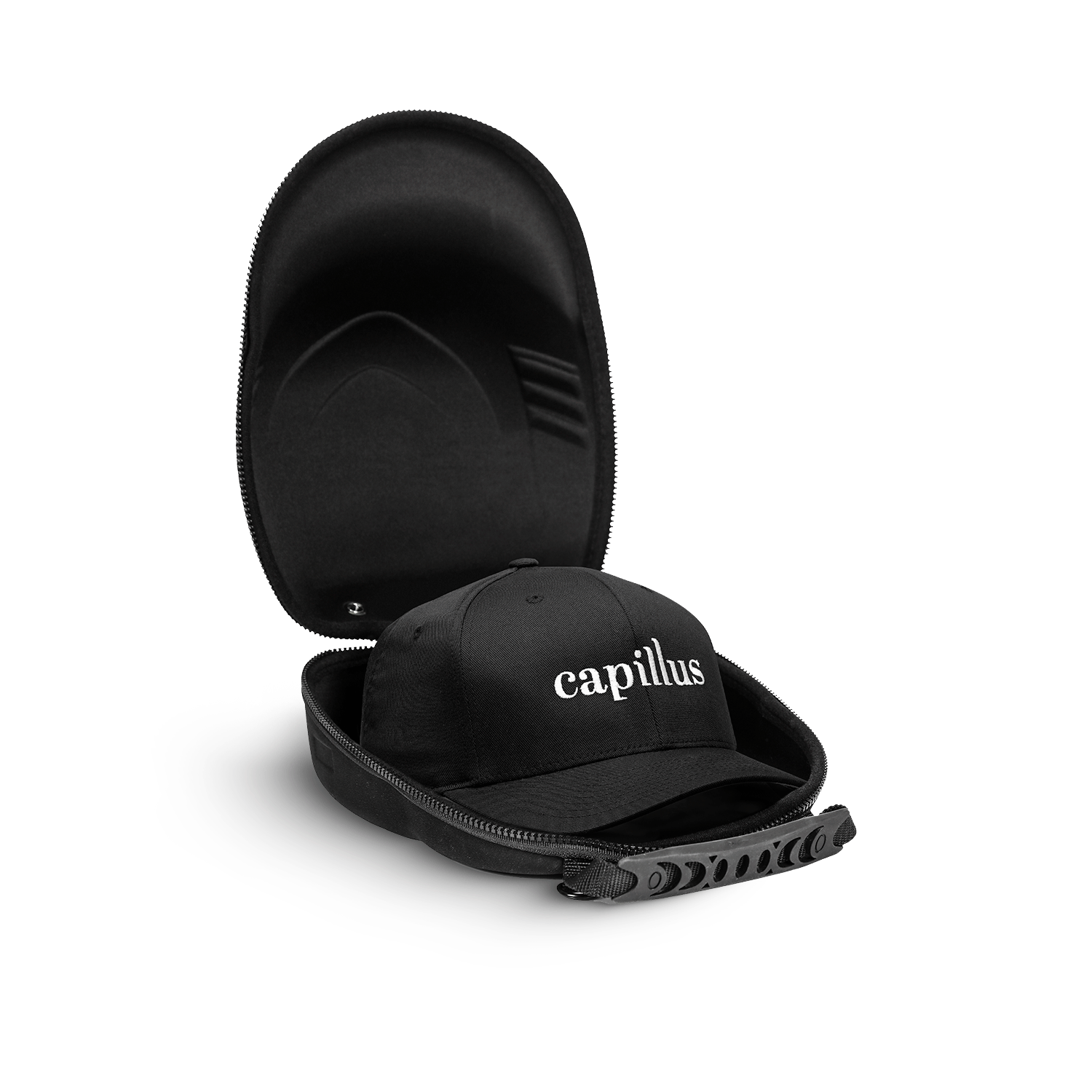

Carrying Case For Laser Cap
Free US shipping for orders over $50. International flat-rate.
30 day risk-free guarantee

Unlock your Hair Potential
For best results pair with these products
Professional-Grade Scalp Coverage
304 Laser Diodes
FAQs
Have a question? We're here to help
Are there clinical trials that support the efficacy of Capillus?
Yes. Capillus Laser devices only use clinically proven technology. In fact, the premiere laser therapy cap model from Capillus - the CapillusPro model - has been proven effective through an independently reviewed clinical trial for which results have been published in an esteemed medical journal, Dermatologic Surgery. Dermatologic Surgery is a monthly peer-reviewed journal published by American Society for Dermatologic Surgery that deals with the subject matter of dermatology.
The CapillusPro device has been clinically proven in a double-blind clinical study registered on ClinicalTrials.gov and managed by a neutral third party.* Clinical trial data indicated that low-level laser treatment of the scalp for 17 weeks with the CapillusPro device significantly improved hair counts by 51% in study participants who used the active (non-placebo) device. Subjects were able to use the device on a self-treatment, home-use basis. No side-effects of any kind were reported from clinical trial participants. The CapillusPro was proven to be a safe and effective treatment for androgenic alopecia within the appropriate stages of hair loss and skin tones as per FDA clearance.
Please note that the results mentioned above are specifically for the CapillusPro model. There have been no clinical trials to date on the other Capillus models to be able to assert an exact percent of average increase of hair.
*See details of clinical trials at ClinicalTrials.gov
There have also been many other clinical trials that support the efficacy of low-level laser technology for treatment of androgenetic alopecia.
Is Capillus good for use after hair transplant procedures?
Yes, Capillus uses safe, low-level lasers to stimulate, energize, and renew cells within the hair follicle for thicker, healthier hair. It also helps those who’ve undergone a hair transplant procedure to protect the new hair growth. Follow your transplant physician's directions for follicle support after transplant.
Are Capillus products safe for women?
Yes. Unlike some prescription medications for hair loss, Capillus low-level laser therapy (LLLT) products are safe for use by women.
In fact, the convenience and effectiveness of personal LLLT products makes the Capillus products the first choice among many hair restoration surgeons who treat women suffering with thinning, shedding, or balding.
Why should I choose Capillus over other brands of laser therapy caps?
Capillus revolutionized the hair restoration industry with the Capillus laser cap a decade ago by making professional-strength laser therapy available to hair loss patients at home. Capillus was the first laser therapy cap to be cleared by the US FDA for treatment of androgenetic alopecia. Since then, many have tried to imitate. Don't settle when it comes to your hair health.
At Capillus, we prioritize excellence above all else. Capillus caps are designed, engineered and assembled in our US-based, ISO13485-certified facility. We only use the highest quality, medical-grade lasers. Our premium laser caps are backed by our elite Physician Network, FDA clearances, our Satisfaction Guarantee, Manufacturer Warranty, and in-house, expert support. We offer choices in models making our caps affordable. We accept most credit cards and offer several payment options, including various financing options making it more affordable.
What is the difference between lasers and LEDs for hair regrowth?
Capillus laser therapy devices use only medical grade laser diodes as a light source. What does this mean? You get the right amount of light energy exactly where you need it. Capillus uses lasers because the output penetrates deeper, better and is clinically proven to be therapeutic for their specific purpose.
Laser light does not spread as much as LEDs over the same distance, which allows lasers to penetrate tissue to a deeper level with higher concentration. For photobiomodulation therapy, the farther the light is from the target, the less intense and less effective the treatment will be.
For light therapy to be effective, it needs to reach the cells that respond well to photobiomodulation therapy.
LASER stands for Light Amplification by Stimulation of Emitted Radiation. This simply means that a source of light is amplified within a gain medium and emitted in a specific way. LASER produces a very intense beam of light which has the following properties:
- Monochromatic (meaning it consists of one wavelength)
- Coherent (meaning all parts are in phase)
- Collimated (meaning all parts travel in one and same direction)
LED stands for Light-emitting Diode. And it’s pretty much just that. A diode that emits light when electricity passes through it. Often in pretty colors.
LED light can produce collimated light (with a focusing lens) but not coherent light thus they do not concentrate all their power in a coherent beam. Laser diodes by definition produce effective collimated and coherent light output.
* See Terms & Conditions for details on Satisfaction Guarantee.

















